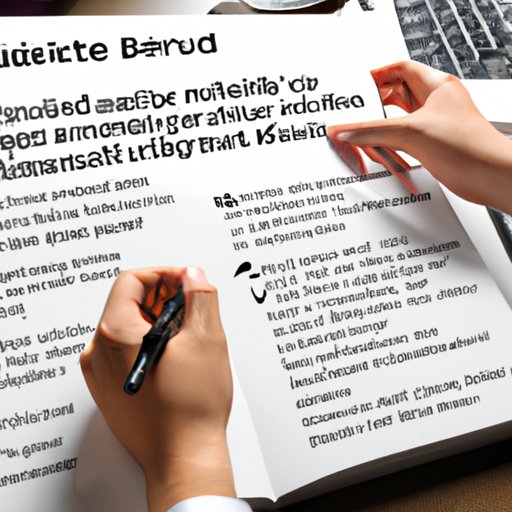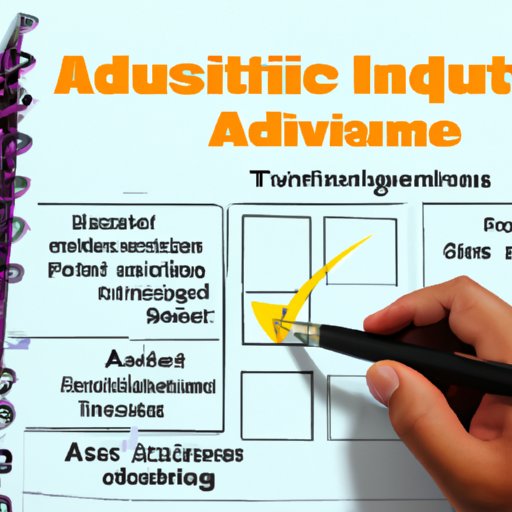Introduction
Audits are an important part of maintaining financial transparency and accuracy in any organization. As technology advances, it is increasingly being used to streamline the audit process. This article will explore how technology is transforming the audit process by examining automation, digitization, artificial intelligence (AI), and cloud computing.
Examining the Impact of Automation on Audits
Automation is one of the most significant technological advancements impacting the audit process. Automation involves the use of computer systems to complete certain tasks that would otherwise have to be done manually. Automation can be applied to various types of audits, including financial, compliance, operational, and IT audits.
Automating the auditing process can save time and money. According to a study by KPMG, automating audit processes can result in cost savings of up to 25%. Furthermore, automating manual processes can reduce the amount of time it takes to complete an audit by up to 50%. Automation also helps to reduce errors and improve accuracy.

Exploring the Benefits of Digital Auditing
Digitizing the auditing process has numerous advantages. Digital auditing enables organizations to store and access data more quickly and easily. It also makes it easier to analyze large amounts of data, as well as identify patterns and trends. Additionally, digital auditing can provide more accurate results than manual auditing.
Digital auditing also offers increased efficiency. By streamlining the data collection and analysis process, digital auditing can help to significantly reduce the time it takes to complete an audit. Digital auditing also helps to reduce costs associated with manual data entry and storage.
Analyzing the Role of Artificial Intelligence in Auditing
Artificial intelligence (AI) is becoming increasingly important in the audit process. AI-powered solutions such as robotic process automation (RPA) can be used to automate tedious tasks such as data extraction and analysis. AI-based risk detection tools can also help to identify potential risks and anomalies in financial statements.
Machine learning algorithms can also be used to detect fraud and other irregularities. These algorithms can analyze large datasets to identify patterns and anomalies that may indicate fraudulent activity. By leveraging AI, organizations can increase the accuracy and speed of their audits.

Investigating How Cloud Computing is Revolutionizing Auditing
Cloud computing is another technology that is revolutionizing the audit process. Cloud computing provides organizations with remote access to data and applications. This allows auditors to access and analyze data from anywhere in the world. Additionally, cloud computing offers enhanced security, as data is stored in secure servers in the cloud.
Cloud computing also enables greater collaboration between auditors and other stakeholders. Auditors can share data and insights in real-time, allowing for quicker decision making. Furthermore, cloud computing can help to reduce costs associated with data storage and transfer.

Evaluating the Advantages and Disadvantages of Technological Advancements in Auditing
While technological advancements have the potential to revolutionize the audit process, there are some drawbacks to consider. Automating processes can lead to job losses, as certain tasks become obsolete. Additionally, automating the auditing process can reduce the number of checks and balances in place, leading to potential inaccuracies.
Digitizing the audit process also has its pros and cons. While it can speed up the audit process, it can also lead to increased cyber-security risks if proper measures are not taken. Similarly, AI and cloud computing can improve the accuracy and efficiency of audits, but can also introduce new security vulnerabilities.
Conclusion
Technology is transforming the audit process in numerous ways. Automation, digitization, AI, and cloud computing can all be used to streamline and improve the audit process. However, it is important to consider the potential drawbacks of these technological advancements before implementing them in the audit process.
Overall, technological advancements can help to reduce costs, improve accuracy, and increase efficiency. In order to maximize the benefits of these technologies, organizations should ensure that they have robust security measures in place and are aware of potential pitfalls.
(Note: Is this article not meeting your expectations? Do you have knowledge or insights to share? Unlock new opportunities and expand your reach by joining our authors team. Click Registration to join us and share your expertise with our readers.)
